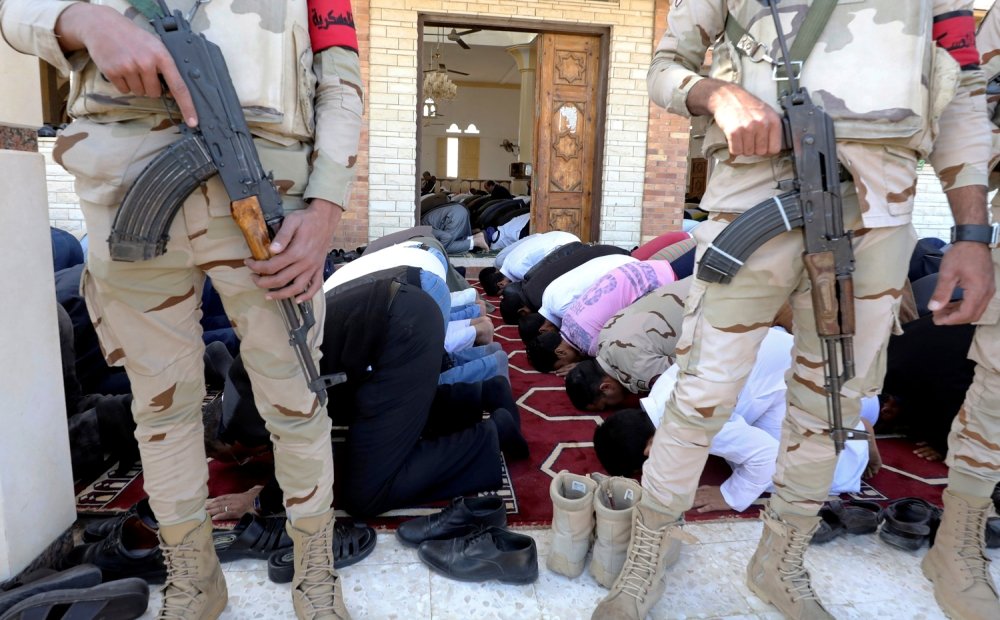Egypt in the Wake of Terror

Last week’s terror attack in northern Sinai surpassed in scale anything the government of Abdel Fattah al-Sisi has encountered to date in its battle with Islamic jihadis. Beyond the sheer magnitude of the loss of life, what is the significance of the attack and the implications for Egypt’s security, politics, and governance? What does the attack tell us about the operational capacity of jihadi terror groups in Sinai and throughout the country? Why has the Egyptian government failed to such an extent in its counterterrorism campaign?
In this conversation, three analysts and scholars of Egypt consider these and related issues.
Key Quotes
Aaron David Miller
“Clearly, this administration came in with a determination to improve what I am sure that they perceived as the dysfunctional and tense relations, not just between the U.S. and Egypt under the Obama administration, but also a certain measure of dysfunction between Washington, Riyadh and Jerusalem and those relationships seem to have evolved over the past ten months. There still appears to be a certain degree of prickliness and tension between the U.S. and Egypt.”
Michele Dunne
“This is not only going on in Sinai. Egypt has a very serious terrorism problem and it is taking place in mainland Egypt too, although not with the intensity of Sinai. There are militant groups who have affiliated with ISIS and some of the other groups with their own names and identities that are operating in the Nile valley.”
“The real problem here, I think, is the need for the Egyptian government to get the cooperation of as many Egyptians as possible against these terrorist organizations and the failure of the Egyptian government to get that cooperation so far. “
“There’s a problem of imprisonment, of torture, of extrajudicial killing, of enforced disappearances and it is well documented that this is leading a certain small number of those young people to turn to violence as the only solution… In addition to that there is an intelligence problem.”
“I want to mention that I think that 2018 promises to be potentially quite a tense year in Egypt for a number of reasons. Unfortunately, we see no sign of violence dying down and we do not know what the effect of military victories against ISIS in Sinai, Iraq, etc. will be on the insurgency in Egypt and whether we will see Egyptians who fought in these insurgencies trying to return to terrorist groups inside of Egypt.”
Amy Austin Holmes
“In my humble opinion, I think the Egyptian authorities could learn something from the experience of liberating Mosul…It is important to point out that Mosul was liberated because of military cooperation, but also because NGOs were allowed to operate in Erbil. Think tanks like the Middle East Research Institute were allowed to operate in Erbil and publish critical reports about politically sensitive issues like the operations in Mosul... There are academic conferences held in Erbil and Sulaymaniyah…where serving military officers from the Iraqi army and the Kurdish Peshmerga would be invited to take part in panels and openly discuss and debate security issues with journalists, academics, policymakers from the United States, Europe, and the Middle East…This type of academic freedom is unthinkable right now in Egypt.”
“I’m afraid that the Egyptian authorities are denying themselves of the very expertise that they need in order to defeat the Islamic State affiliate’s in the Sinai… I believe this is, as Michele and Andrew mentioned, an intelligence problem—to defeat an insurgency you need good intelligence and you also need good expertise of investigative journalist and academics…and this is something that I think the Egyptian authorities should rethink their approach to academic freedom of the press…”
Andrew Miller
“Most estimates put the group [ISIS in Sinai] between 600 and 1500—probably the best estimate is somewhere between 800 and 1200. The group is largely comprised of Bedouin—who are native to the Sinai Peninsula—there are a few Bedouin from Gaza because of the continuous nature of the groups operating there and perhaps a few foreign fighters.”
“The roots of the group are in an insurgency in the Sinai in the mid-2000s. There was a group at the time called Tawhid wal-Jihad that conducted some high profile attacks in Sharm El Sheikh and Taba—major tourist destinations…This particular organization was founded as Ansar Bait al-Maqdis, which loosely translates to "supporters or champions of Jerusalem" in 2011. At first they were primarily focused on attacking Israel—largely through lobbing rockets into Israeli territory from the Sinai—but in 2013 with the removal of Mohammed Morsi as President, the group began to refocus on Egyptian security forces and the Egyptian state.”
Shafik Gabr
“Stability and security is critical for Egypt. Not only for Egypt, but if Egypt goes— the region goes. Therefore, there has been a focus on stability and security.”
“If you combine Lebanon, Syria, Jordan and the UAE, they all would fit inside Sinai and the threat that Egypt has is not just in Sinai, but it is important that it is on the (1,200 km) Libyan border. Unless Libya itself is stabilized [Egypt cannot be]…because weapons are being smuggled from Libya and terrorists cross into Egypt…the key elements have to be security/stability to be able to build a better engagement, a better democracy, and more attention to human rights. But without stability and security, I don’t think we can be able to move on the other issues as much as we would want to.”
Introduction

Moderator

Panelists


Research Professor of International Affairs and Acting Director of the Foreign Area Officers Program, George Washington University
Chairman and Managing Director of the ARTOC Group for Investment and Development
Hosted By

Middle East Program
The Wilson Center’s Middle East Program serves as a crucial resource for the policymaking community and beyond, providing analyses and research that helps inform US foreign policymaking, stimulates public debate, and expands knowledge about issues in the wider Middle East and North Africa (MENA) region. Read more
